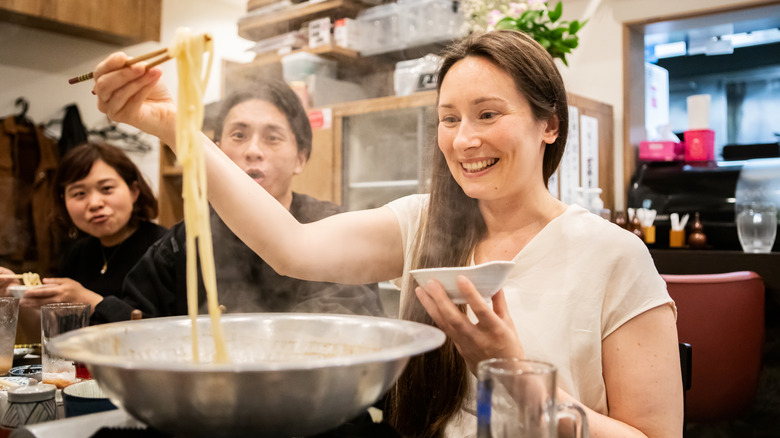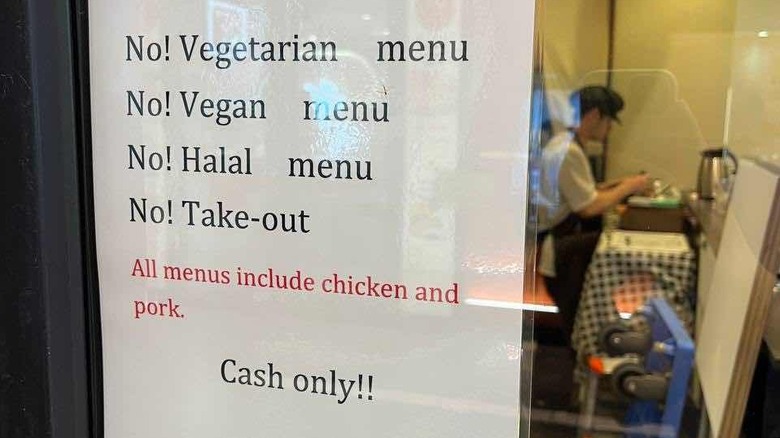Avoid This Common Mistake When Eating Out In Japan
For many travelers, Japan is the bucket list destination of all bucket list destinations. The rich history, elegant culture, diverse cities, and delicious cuisine are some of the many reasons why Japan is so popular. And since 2025 has been one of the cheapest years to visit this coveted country, many Americans are taking advantage and making their dream vacation come true. However, as with all new places, Americans should expect to experience a few culture shocks. Everyday Japanese norms can be different than what you're used to, and some behaviors you wouldn't think twice about in the states will not fly in Japan.
Picky eaters, step to the front. It can be hard finding a dish that is 100% perfect and only includes ingredients you like. And while American restaurants are generally happy to accommodate, Japanese restaurants are more hesitant. Unless there are allergies or other dietary restrictions involved, one of the things tourists should never do when visiting japan is changing or making modifications to restaurant orders.
This is typically because most restaurants specialize in a specific food or style, and it can be very difficult to substitute ingredients. Additionally, some restaurants have recipes that are unique and make their business stand out from the rest, so asking them to change their recipe for you can be seen as rude. This is something to keep in mind if you want to be a considerate tourist when visiting Japan.
Planning ahead is the key to a successful meal
If you've been dreaming of a vacation to Japan and you have specific dietary restrictions, don't despair! You can absolutely visit the country, have a good time, and eat amazing meals suited for your needs. You just need to do some extra planning before you embark on your trip. The first step is to familiarize yourself with basic Japanese cuisine so you have an idea of what each dish is made of. This will help you avoid accidentally ordering something you can't eat. Don't be afraid to write these down or have a printed reference sheet handy whenever you go out to eat.
Next, research restaurants in the cities you're visiting. While many may not be open to accommodating tourists, there are some places happy to cater to various dietary needs. For example, I only eat halal-certified meat, so while planning for my future Japan trip, I'm looking into local halal restaurants. Tools like HappyCow or Google Maps will be especially helpful in identifying which restaurants are vegetarian, vegan, and allergen-friendly.
You should also be mindful of the occasional "Japanese-only" restaurant that only serves locals so you know which places to avoid. If you're really worried about allergies, there are allergy cards available online you can print and fill out. They will help communicate your needs to restaurant staff, who can help confirm which dishes are okay for you to consume.

